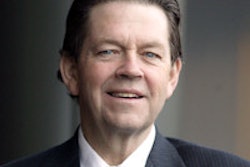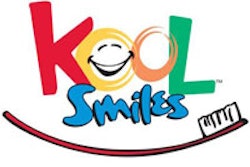
A new study conducted by a well-regarded economist but paid for by the dental chain Kool Smiles found that dental service organizations (DSOs) provide lower cost treatment to underserved populations. The report also eschews criticisms about Medicaid fraud and unnecessary procedures that have been leveled against many DSOs.
The report, released September 19, was compiled and written by Arthur Laffer, PhD, a former advisor for President Ronald Reagan who is known as the father of supply-side economics. The 17-page paper, "Dental Service Organizations: A Comparative Review," evaluated all Texas Medicaid data from fiscal year 2011, including 25.9 million procedures.
"DSOs are providing dental care to some of the poorest, most underserved segments of our society," Laffer wrote. "DSOs are not only providing much needed care, but they are providing that care expeditiously and relatively inexpensively when compared to non-DSO affiliated dentists."
DSOs have operated since the 1960s but have become much more prevalent since the late 1990s, he noted.
According to Laffer, DSOs' use of scale while managing day-to-day scheduling, purchasing, billing, and regulatory compliance enables them to operate with much lower costs than traditional dental practices and allows them to treat Medicaid patients at a profit, "something many traditional dental practices are unwilling or unable to do."
The report's main findings include the following:
- In Texas in 2011, Kool Smiles dentists performed 8.24 procedures per patient and dentists belonging to DSOs performed 10.15 procedures per patient, versus 12.39 procedures per patient at non-DSOs.
- The cost per patient per year was $345.45 at Kool Smiles practices and $483.89 at DSO clinics, compared with $711.54 for non-DSO offices.
- Dentists at DSO clinics also billed Medicaid less per patient than other dentists did for those procedures, which could indicate the presence of fraud or mistreatment, such as tooth extractions, pulpotomies, and crowns.
Aggregate dental statistics by provider type (All Texas Medicaid providers, fiscal year 2011)
|
||||||||||||||||||||||||||||||
| *TPIs = Texas provider identifier numbers. Data courtesy of Laffer Associates. | ||||||||||||||||||||||||||||||
Despite these positive numbers, Laffer contends in the report that DSOs are "under attack," and he vigorously denounced as "totally untrue" allegations that DSOs perform unnecessary and higher-cost procedures to inflate Medicaid billing.
"Within the dental industry, DSOs are being portrayed as perpetrators of Medicaid fraud," Laffer wrote. "The main story line put forth by DSO detractors is that DSOs, backed by greedy private equity financiers, are only out to turn a profit and accordingly are inappropriately running up the procedure count on their patients in order to generate more total reimbursement dollars from Medicaid and CHIP [Children's Health Insurance Program]."
Multistate investigations
But the reality is that several DSOs, including Kool Smiles, have been the subject of investigation by Sen. Charles Grassley (R-IA) and officials in many states, including Texas, Connecticut, Georgia, and Massachusetts -- in each case for allegedly performing unnecessary procedures and pressuring dentists to perform higher-cost treatments such as stainless steel crowns and pulpotomies.
"We're finding that these dental practices, under pressure from owners who are not licensed dentists, have been providing services with the highest Medicaid reimbursement levels more often than less expensive, arguably more appropriate services," Grassley stated in a June press release. "There are legitimate concerns that children are receiving unnecessary care, sometimes in a traumatic way, and taxpayers are paying for it."
State authorities in Massachusetts and Georgia have reported documented cases of unnecessary procedures at Kool Smiles in past years, according to a report by the Center for Public Integrity (CPI). Medicaid authorities in Texas said they are currently conducting inquiries into Kool Smiles and other dental practices for possible unnecessary treatments. Connecticut's investigation showed overtreatment by Kool Smiles dentists, poorly done pulpotomies, and ill-fitting crowns. The company subsequently acknowledged substandard work.
According to Laffer's report, Kool Smiles -- which is owned by the private equity firm Friedman Fleischer & Lowe -- had "no say over the conclusions" drawn from his analysis, although he did note that he did not verify the authenticity or accuracy of the data given him by the dental chain.
But some questioned Laffer's objectivity.
Christine Ellis, DDS, MSD, a Dallas orthodontist and a clinical assistant professor of oral surgery at the University of Texas Southwestern Medical Center, was an auditor for the Texas Office of Inspector General's investigation into All Smiles Dental Centers, another DSO, and several orthodontists regarding Medicaid fraud. Dr. Ellis also testified before a U.S. House of Representatives committee on government oversight in Washington, DC, in April regarding Medicaid fraud.
While Dr. Ellis said she respects Laffer and his good reputation, she expressed "grave concerns that he's been misled."
"Because he's convinced it's a better economic model, I think he's blind to the fraud that's in these numbers," she told DrBicuspid.com. "The dollar amounts, whether they're accurate or not, don't really matter because the bigger issue is Medicaid fraud. It's also an issue over the legality of dental management service organizations (DMSOs). His numbers may be accurate but they're separate issues of whether the DMSO industry is operating within the Dental Practice Act, and by combining the two issues he's clouding both topics."
A question of legality
Dr. Ellis and others assert that DMSOs are illegal because they violate state Dental Practice Acts that say only licensed dentists can own or operate dental offices and clinics.
"In my opinion, DMSOs are not legal," she observed. "It doesn't matter if they are doing Medicaid or fee-for-service dentistry. They hire dentists and have revenue targets. I can't figure if he's laying the groundwork to try and change law, but it's the law in every state."
Frank Catalanotto, DMD, a professor and the chair of the department of community dentistry and behavioral sciences at the University of Florida College of Dentistry, said he also questions the report's integrity.
"Any time an organization is under investigation, you'd always look suspiciously that Kool Smiles has a self-serving motive in paying for studies like this," Dr. Catalanotto told DrBicuspid.com. "We have to assume the investigations are also valid and based on complaints and specific reasons. But in any organization you have to determine what's driving the organization. Is there a profit motive, and does that result in bad behavior?"
Houston attorney Jim Moriarty, who is part of a whistle-blower case against Dallas-based All Smiles Dental Centers, agrees that DSOs violate state dental practice laws.
"The elephant in the room is what Kool Smiles and Small Smiles and the rest of the DSOs are doing is illegal," he told DrBicuspid.com. "No private equity firm spends a billion dollars buying a dental practice unless they get complete control over the business and complete control over the income stream. So Laffer's premise that the private equity firms that own most of them do not have control over the clinics is a lie, and he glosses over this."
Laffer did not respond to calls for comment.
Some good points, but ...
But Dr. Catalanotto agreed that DSOs provide a good model for lower cost care, especially for Medicaid patients. "Are DSOs an effective way to get care to underserved populations? I think the answer is yes," he said.
Dr. Ellis added: "I think it's the intent of an economist who's saying dentistry is very expensive and there should be a cheaper way to do it, and I agree with that. I think Laffer acknowledged that problem and said, 'We've already ground-tested this, and this is the solution and it works really well, so we need to run with the DMSO model.' But that's short-cutting the conversation about the economics of dentistry."
She and others worry that the DSO model allows too much room for behaviors designed to bolster a company's bottom line versus ensuring appropriate patient care.
"I think in the DMSO model you're moving from a doctor/patient relationship to a situation involving patient, doctor, manager, and investors," Dr. Ellis said. "There are too many investment parties in that financial transaction for me to ever think the DMSO model is a good way to go."
M. Alec Parker, DMD, is the director of the North Carolina Dental Society, which supported recently passed legislation that provides more regulatory oversight of contracts between DSOs and dentists. Dr. Parker found the report was "a bit myopic."
"I've heard stories from dentists who described overtreatment, quotas, pressure to produce and upsell, all the things the Laffer report seems to say doesn't take place, all while using statistical data to try to prove his point," he told DrBicuspid.com. "It's interesting the conclusions were seemingly blind to these activities and brings into question issues the study failed to address. Our problem wasn't with the model but those who abused their positions to influence dentists within the model, and whether it was being operated in a legal manner."
Differing statistics
David Heath is a reporter with the CPI who was involved with a PBS "Frontline" program that concluded the same business model that makes Kool Smiles profitable as a dentist of last resort has also led to complaints that they provide unnecessary treatment for children in need.
The "Frontline" and CPI investigations found that Kool Smiles places far more crowns than average on children age 8 and younger on Medicaid, according to an analysis of 2010 Medicaid data in Texas and Virginia.
In response, Kool Smiles supplied its own analysis using state Medicaid data and came to the same conclusions as the Laffer report: Its offices perform fewer procedures per patient, charge less per patient, and have lower x-ray costs per patient on average.
Heath said the "Frontline"/CPI investigation came up with different statistics than Laffer's evaluation of Kool Smiles' treatments because Laffer used different criteria. Heath asked how many times patients went to dentists for restoration work and got crowns, whereas Laffer compared the number of crowns to prophys, he said.
Attorney Moriarty also noted that Laffer used provider numbers for Kool Smiles' clinics, not dentists' provider numbers.
"If you show numbers for the clinics but not dentists, you're going to show false numbers," he told DrBicuspid.com.
However, John Notarianni, DDS, the clinical director at Aspen Dental in Knoxville, TN, said the companies provide "innovative, market-driven solutions" that free dentists from time-consuming administrative tasks so they can see more patients.
And Ronald H. Hsu, DDS, a pediatric dentist with Gentle Dental, part of the Interdent company that owns and operates 120 offices in eight Western states, pointed out that dentists bear some responsibility for questionable treatment practices. (Interdent was recently acquired by H.I.G. Capital, a global private investment firm.)
When Dr. Hsu first began working at Gentle Dental, company managers expressed concerned about the number of patients he was seeing, he told DrBicuspid.com. But after discussions, they agreed to be patient and the issue was resolved.
Dr. Ellis said she agrees with Laffer's recommendation that the dental profession needs to work with policymakers to make access to dental care more affordable.
"We need to have a big ol' come to Jesus discussion about the cost of dental care," she said. "But I just think he rushed to make a conclusion that's not serving anybody but DMSOs. It's not going to help the public, it's not going to help dentists, it'll only help DMSOs."

.hpp4JFpXkV.png?crop=focalpoint&fit=crop&fp-x=0.5&fp-y=0.5&h=100&w=100&auto=format%2Ccompress&q=70)





.hpp4JFpXkV.png?crop=focalpoint&fit=crop&fp-x=0.5&fp-y=0.5&h=167&w=250&auto=format%2Ccompress&q=70)











